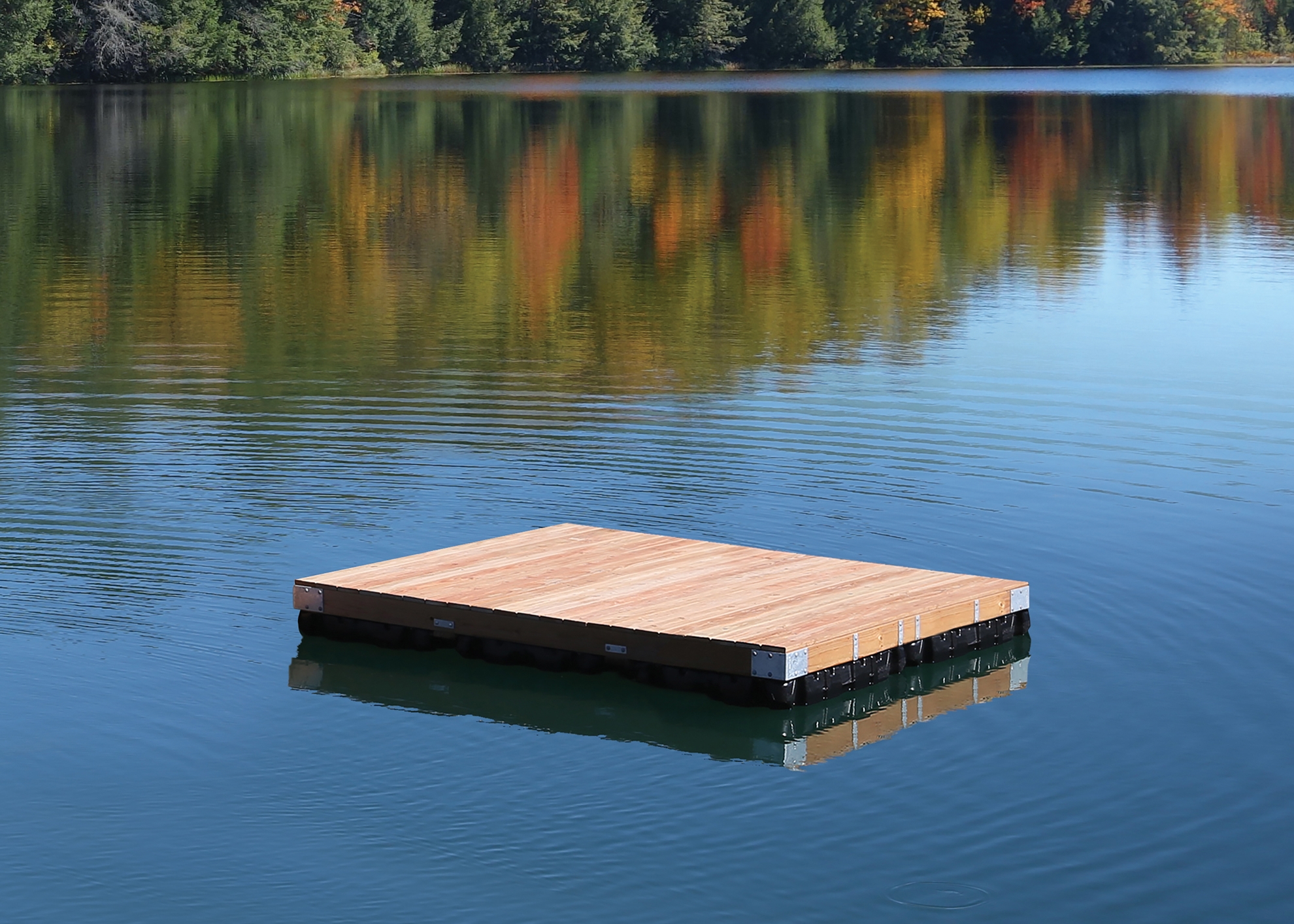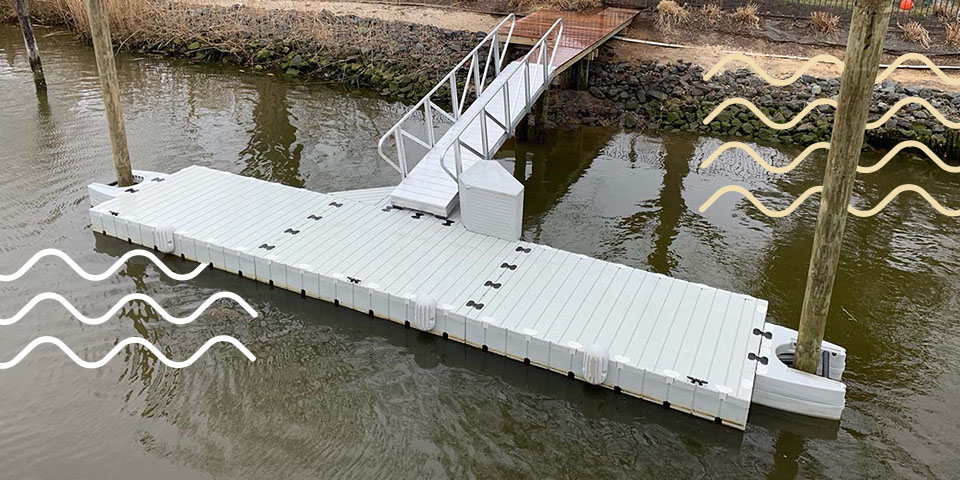Why Floating Docks Are the Perfect Remedy for Your Beachfront Requirements
Floating docks present a compelling option for waterfront demands, specifically due to their versatility to changing water degrees and their robust, modular layout. As we explore the complex benefits and applications of floating docks, it comes to be evident why they stand out in the realm of waterside facilities-- particularly when taking into consideration the long-term benefits they offer for numerous stakeholders.
Trick Benefits of Floating Docks
The convenience of floating docks deals many benefits for waterfront applications, making them a significantly prominent option among marina operators and residential or commercial property designers. Among the main benefits is their adaptability to changing water degrees, which enables them to stay useful in various environments, including lakes, rivers, and coastal areas. Unlike typical set docks, floating docks can fluctuate with the trends and seasonal modifications, guaranteeing constant ease of access.
Furthermore, floating docks are generally less complicated and cheaper to keep and set up. Their modular style helps with fast setting up, decreasing labor prices and construction time. Additionally, the materials utilized in floating dock construction are typically immune to rust, making sure durability with marginal upkeep.
Safety and security is one more essential advantage; the resilient nature of these docks lessens the danger of accidents during boarding and getting off, making them especially appealing for family-oriented facilities. Finally, their ecological effect is less than that of set structures, as they do not interrupt marine environments. Jointly, these advantages position floating docks as a premium service for a series of waterfront demands, lining up with both functional effectiveness and environmental considerations.
Ideal Applications for Various Tasks
Adaptability is a trademark of floating docks, making them appropriate for a vast array of activities throughout various waterfront settings. These functional frameworks can work as ideal platforms for entertainment activities such as boating, fishing, and swimming. Their buoyant nature enables easy accessibility to watercraft, enabling smooth departure and disembarkation, while also supplying a secure location for fishermens to cast their lines.
In business setups, floating docks help with the loading and dumping of goods, accommodating both large and little vessels. They are specifically advantageous in locations with ever-changing water levels, making sure that operations stay nonstop. In addition, floating docks can be made use of for beachfront eating and enjoyment, supplying a distinct and scenic experience for customers.
Ecological applications are also significant; floating docks can function as monitoring platforms for wild animals watching or as docking terminals for study vessels involved in eco-friendly studies. As marina growths come to be much more widespread, these docks offer a sensible option for enhancing capacity without extensive land modifications. Eventually, the flexibility of floating docks makes them a recommended option for any individual looking for practical and effective waterfront options.
Design and Modification Alternatives
Floating docks not just accommodate varied activities yet additionally use a series of design and personalization alternatives that enhance their functionality and aesthetic appeal. These functional frameworks can be tailored to fit specific waterfront needs, whether for domestic, business, or leisure purposes.
One trick aspect of customization is the option of materials. Options vary from high-density polyethylene to aluminum, each providing distinct advantages in regards to sturdiness and upkeep. Furthermore, the setup of the dock can be adjusted to match numerous water degrees and ecological conditions, guaranteeing stability and safety.
Design features can include incorporated seating, barriers, and lighting, which not only enhance use but also boost the aesthetic element of the dock. Custom finishes and shades permit owners to match the dock with existing structures or individual preferences, creating a natural search for the waterfront.
In addition, floating docks can be developed with modular sections, enabling easy expansion or reconfiguration as needs alter. This adaptability is particularly important for expanding family members or developing companies. In general, the substantial layout and personalization alternatives offered make floating docks a very versatile option for any beachfront setting.
Installment and Upkeep Factors To Consider
Generally, successful setup and upkeep of floating docks need cautious preparation and interest to information. Before starting setup, it is important to examine the details site problems, consisting of water depth, wave activity, and neighborhood regulations. This initial examination educates the selection of products and layout, ensuring the dock will hold up against environmental tensions.

Maintenance is just as crucial to prolong the lifespan of the dock. Normal inspections should be carried out to identify wear and tear, particularly on flotation protection devices, adapters, and decking. Cleansing the resource dock regularly assists protect against the accumulation of algae and particles, which can compromise surface area honesty and looks.
In addition, seasonal prep work, such as getting rid of devices and protecting the dock throughout severe climate, can prevent damages. By focusing on correct setup and routine maintenance, proprietors can ensure their floating dock remains a trusted and practical waterfront remedy for years to find.

Ecological Influence and Sustainability
The ecological influence of floating docks is an important consideration for waterfront tasks, as these frameworks communicate directly with water environments. floating dock builder. Unlike standard fixed docks, floating docks lessen interruption to the substrate, permitting for natural sediment motion and lowering disintegration. Their layout permits for water flow beneath, promoting healthy marine atmospheres and sustaining local wildlife
Numerous floating docks are built from lasting materials, such as green compounds and recycled plastics, which reduce the carbon impact connected with production. In addition, contemporary styles integrate functions that enhance environmental sustainability, such as absorptive surfaces that help with water filtration and minimize air pollution.
Floating docks additionally give an ideal system for environment restoration by sustaining the growth of aquatic plants and offering shelter for fish and other aquatic microorganisms. By including features like fish habitats and submerged plantings, floating docks can enhance biodiversity in the location.
On top of that, these frameworks can be developed to fit photovoltaic panels, giving renewable resource alternatives that further decrease their environmental influence (floating dock company). Overall, floating docks represent a sustainable service that stabilizes human use waterfronts with the conservation of important environments
Final Thought
To conclude, floating docks existing a extremely adaptable and lasting service for diverse waterside demands. Their modular layout, combined with making use of durable, corrosion-resistant materials, ensures long life and ease of maintenance. The versatility of anonymous floating docks accommodates numerous applications, varying from recreational activities to business operations while minimizing ecological influence. Inevitably, the adjustable features and capability for expansion additional strengthen floating docks as an ideal option for any kind of waterside task.
Floating docks present a compelling service for beachfront needs, specifically due to their versatility to rising and fall water levels and their robust, modular design. Unlike typical set docks, floating docks can drop and climb with the trends and seasonal changes, making certain constant availability.
Jointly, these benefits setting floating docks as a remarkable service for a variety of waterfront demands, aligning with both functional performance and eco-friendly considerations.
On the whole, the considerable design and personalization choices offered make floating docks a highly versatile service for any kind of beachfront setting.
Unlike standard fixed docks, floating docks lessen disruption to the substrate, allowing for all-natural sediment motion and minimizing erosion.